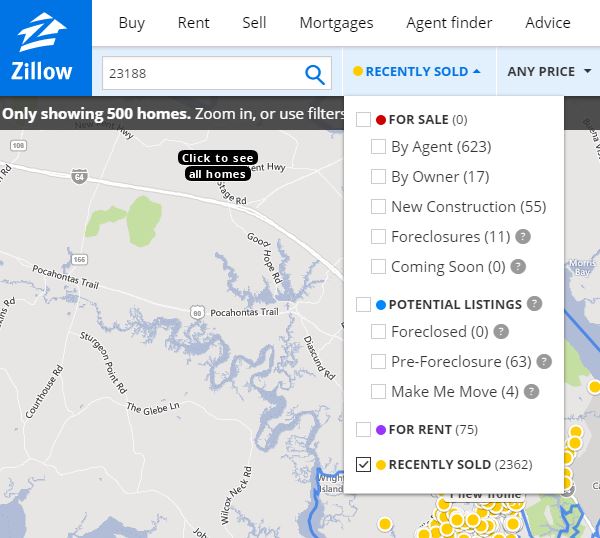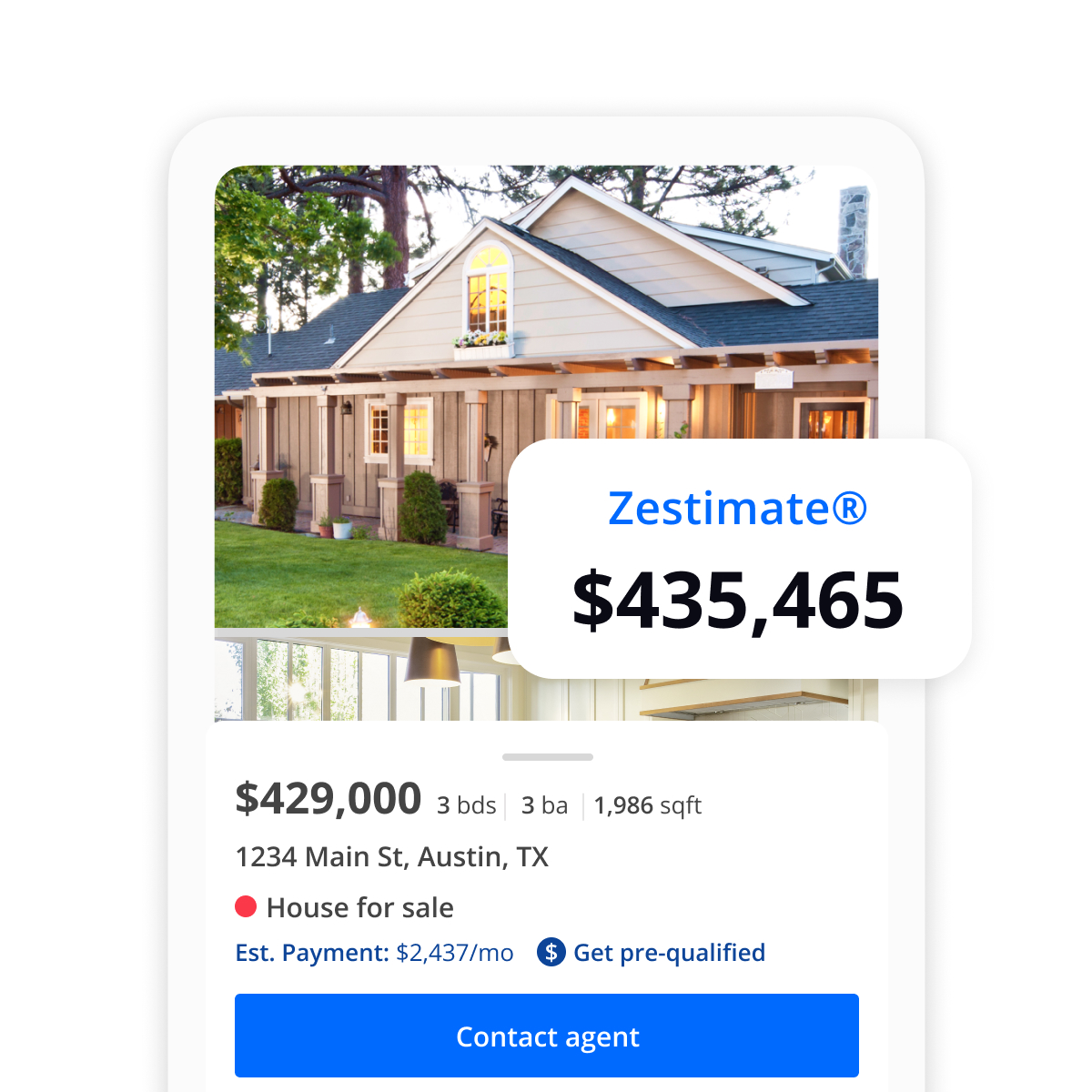Zillow Home Estimates: The Ultimate Guide To Understanding Your Home's Value
Hey there, home enthusiasts! If you've been exploring the world of real estate or just curious about your home's worth, you've probably stumbled upon the term "Zillow home estimates." This powerful tool has become a go-to resource for homeowners, buyers, and sellers alike. But what exactly are Zillow home estimates, and how do they work? Let's dive in and uncover everything you need to know about this game-changing feature.
Now, before we get into the nitty-gritty, let's set the stage. Zillow home estimates, also known as Zestimates, are automated valuations that give you an idea of your home's current market value. It's like having a crystal ball for your property, but instead of magic, it relies on data and algorithms. Sounds cool, right? But hold up—there's more to it than just a number on a screen.
Whether you're planning to sell your house, refinance your mortgage, or simply satisfy your curiosity about your home's worth, Zillow home estimates can provide valuable insights. However, it's important to approach them with a bit of skepticism. Stick around, and I'll break down the ins and outs of Zillow's valuation system so you can make informed decisions about your property.
Read also:Cameron Herrin Sentencing The Untold Story Behind The Verdict
What Are Zillow Home Estimates?
Alright, let's start with the basics. Zillow home estimates, or Zestimates, are basically educated guesses about the value of your home. They're generated using a proprietary algorithm that analyzes tons of data points, including property details, market trends, and nearby home sales. Think of it as a virtual real estate agent who's always on the job, crunching numbers to give you a ballpark figure.
But here's the deal: Zestimates aren't perfect. While they're a great starting point, they shouldn't be the final word on your home's value. Factors like location, condition, and unique features can significantly impact your home's worth, and these aren't always captured in Zillow's calculations. So, while Zestimates are handy, they're just one piece of the puzzle.
How Accurate Are Zillow Home Estimates?
Now, let's talk accuracy. Zillow claims that its Zestimates are within 7.9% of the final sale price for homes in its database. That's not bad, but it also means there's room for error. In some markets, the accuracy can be much higher, while in others, it might be way off. Why is that? Well, it all comes down to data.
If Zillow has limited or outdated information about your property, its estimate might not reflect the true value. For example, if you've made significant renovations or upgrades, Zillow might not know about them. Similarly, if the market is rapidly changing, the algorithm might not keep up in real-time. So, while Zestimates are a useful tool, they're not a substitute for a professional appraisal.
Factors Affecting Zillow Home Estimates
Now that we've established that Zestimates aren't foolproof, let's explore the factors that influence them. Understanding these elements can help you interpret your home's estimate more accurately.
- Property Details: Zillow relies on public records to gather information about your home, such as square footage, number of bedrooms and bathrooms, and year built. If these details are incorrect or incomplete, it can skew the estimate.
- Market Trends: The real estate market is constantly evolving. Zillow considers factors like home prices in your neighborhood, days on the market, and recent sales to adjust its estimates.
- Location: Location, location, location! Your home's proximity to schools, parks, and other amenities can significantly impact its value. Zillow tries to factor this in, but it's not always perfect.
- Renovations and Upgrades: If you've spruced up your home with new appliances, a remodeled kitchen, or a fresh coat of paint, Zillow might not be aware of these changes. That's why it's important to update your property details on the platform.
Why Zillow Home Estimates Matter
So, why should you care about Zillow home estimates? Well, they serve several purposes. First, they give you a general idea of your home's value, which can be helpful if you're thinking about selling. Second, they provide a benchmark for comparing your home to others in the area. And third, they can alert you to potential issues with your property data that need to be corrected.
Read also:Brian Blosil Net Worth The Untold Story Behind The Numbers
But here's the kicker: Zestimates aren't just for homeowners. Buyers can use them to gauge whether a listing is priced fairly, and real estate agents can use them as a reference point in negotiations. In short, Zillow home estimates are a versatile tool that benefits everyone involved in the real estate process.
How Zillow Calculates Home Estimates
Curious about the magic behind Zillow's algorithm? Let me break it down for you. Zillow uses a combination of machine learning and data analytics to generate its home estimates. Here's how it works:
- Data Collection: Zillow gathers information from public records, user-submitted data, and third-party sources. This includes details about your home, neighborhood, and local market conditions.
- Data Analysis: The algorithm analyzes this data to identify patterns and trends. It looks at things like recent home sales, price fluctuations, and economic indicators to predict your home's value.
- Estimate Generation: Once the data is processed, Zillow generates a Zestimate for your property. This number is updated regularly to reflect changes in the market.
It's worth noting that Zillow's algorithm is constantly evolving. As more data becomes available and technology advances, the accuracy of Zestimates is likely to improve. But for now, it's important to take them with a grain of salt.
Common Misconceptions About Zillow Home Estimates
There are a few myths floating around about Zillow home estimates that need to be debunked. Let's set the record straight:
- Zestimates Are Always Accurate: Nope. As we've discussed, Zestimates are estimates, not guarantees. They're a useful tool, but they shouldn't be relied upon as the sole source of information about your home's value.
- Zillow Only Uses Public Records: While public records are a key component of Zillow's data, the platform also relies on user-submitted information and third-party sources to create a more complete picture of your property.
- Zestimates Are Set in Stone: Not true. Zillow updates its estimates regularly to reflect changes in the market. If you notice a significant discrepancy between your Zestimate and your home's actual value, you can request a data update to ensure accuracy.
Updating Your Zillow Home Estimate
If you think your Zillow home estimate is inaccurate, don't panic. You can take steps to improve its accuracy. Here's how:
First, visit your property page on Zillow and click on the "Edit Details" button. From there, you can update information about your home, such as square footage, number of bedrooms and bathrooms, and any recent renovations. The more accurate your property details are, the more reliable your Zestimate will be.
Next, consider reaching out to Zillow's customer support team if you have questions or concerns about your estimate. They can help you troubleshoot any issues and ensure your data is up to date.
When to Trust Zillow Home Estimates
So, when can you trust a Zillow home estimate? Generally, Zestimates are most reliable in areas with a lot of recent home sales and accurate public records. If your neighborhood is well-documented and the market is stable, your Zestimate is likely to be pretty close to the mark.
However, if you're in a rapidly changing market or your home has unique features that aren't reflected in the data, take your Zestimate with a grain of salt. In these cases, it's always a good idea to consult with a local real estate agent or appraiser for a more accurate valuation.
Alternatives to Zillow Home Estimates
While Zillow home estimates are a popular choice, they're not the only game in town. Here are a few alternatives to consider:
- Redfin: Redfin offers its own home value estimates, which are based on similar data points as Zillow. However, they also provide access to local real estate agents who can offer personalized insights.
- Realtor.com: Realtor.com provides home value estimates that take into account recent sales, market trends, and property details. They also offer a "Price It" tool that allows users to adjust their home's value based on specific features.
- CoreLogic: CoreLogic is a data analytics company that provides detailed property reports, including estimated values, market trends, and risk assessments. Their reports are often used by lenders and investors to make informed decisions.
Each of these platforms has its own strengths and weaknesses, so it's worth exploring them to see which one works best for you.
Why Professional Appraisals Still Matter
Even with all the advancements in technology, professional appraisals remain the gold standard for determining a home's value. Why? Because appraisers take into account factors that algorithms can't, such as the condition of your home, its unique features, and its appeal to potential buyers.
Appraisals are also legally required for most mortgage transactions, so they're an essential part of the home-buying process. While Zillow home estimates can provide a rough estimate of your home's worth, they shouldn't replace a professional appraisal when it really counts.
Final Thoughts
Alright, let's wrap things up. Zillow home estimates are a powerful tool for anyone interested in real estate. They provide valuable insights into your home's value and can help you make informed decisions about buying, selling, or refinancing. However, it's important to remember that Zestimates are just estimates. They shouldn't be relied upon as the sole source of information about your property's worth.
So, what's the takeaway? Use Zillow home estimates as a starting point, but don't be afraid to dig deeper. Update your property details, consult with local experts, and consider a professional appraisal if you need a more accurate valuation. By combining Zillow's data with your own research, you can get a clearer picture of your home's true value.
And hey, if you found this guide helpful, don't forget to share it with your friends and family. Knowledge is power, and the more people understand about Zillow home estimates, the better decisions they can make about their properties. So, go ahead and spread the word!
Table of Contents
- What Are Zillow Home Estimates?
- How Accurate Are Zillow Home Estimates?
- Factors Affecting Zillow Home Estimates
- Why Zillow Home Estimates Matter
- How Zillow Calculates Home Estimates
- Common Misconceptions About Zillow Home Estimates
- Updating Your Zillow Home Estimate
- When to Trust Zillow Home Estimates
- Alternatives to Zillow Home Estimates
- Why Professional Appraisals Still Matter


